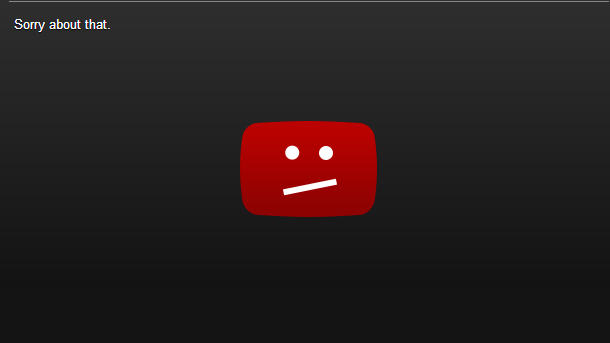Please support Game Informer. Print magazine subscriptions are less than $2 per issue
Opinion – Publishers Must Find A Better Way To Protect Copyright

This morning's news about extensive copyright claims against a multitude of game-related videos on YouTube has prompted a lot of discussion about the best way for publishers to work with the community. United States copyright law is gray in a lot of places, but there is one thing that is certain. Content creators have a duty to vigorously defend their intellectual property. Failure to do so isn’t a gesture of kindness, it’s the bullet that becomes suddenly and unexpectedly lodged in the foot.
The law is written such that any incursion on the copyright boundaries can be used against an intellectual property holder should a case be pursued later. A defendant can cite similar examples using copyrighted material that weren’t pursued to show that the copyright holder failed in its duty. This could drastically reduce the value of the work and, therefore, the possible judgment amount.
It is for this reason (and others) that we’re likely seeing a surge in copyright claims on YouTube videos. It’s important to distinguish critical work (like video reviews) from “let’s play” videos.
While few would argue that LPers add their own flavor to the material. Use of the video content wouldn’t pass muster for fair use. Using huge chunks of a game (possibly the entire thing) even with that voice overlay wouldn’t pass the criticism and critique test because of the portion used in the video.
Regardless of whether something is considered fair use though, the copyright holder has a right to claim protection. There are some clearer cases (such as news broadcasts), but grey areas exist where the effect of the secondary work on the original is unclear or the purpose of the secondary material isn’t easy to discern. In the latter examples, a federal court is required to make the determination.
All of that aside, there is a better way. Some publishers have essentially waived licensing fees for video creators. One such company is Deep Silver.
Following Deep Silver’s extensive, YouTube creator-friendly statement on the copyright matter, we spoke with director of marketing and public relations Aubrey Norris about her company’s approach to that community.
“We absolutely love LPers and folks that make their own videos using our games,” Norris told us. “They are a really important part of our community because they're really passionate and super creative, which can result in some amazing videos that make the rounds among our team! (Yes, we do watch many of your videos and love them!)”
Norris went on to explain that Deep Silver views YouTube creations as a form of self-expression, and one that should be eligible for monetization. “Our policy is very simple – we won't flag your videos as long as you are posting content for released games, and we are fine with YouTubers earning money from their videos,” she said. “We think fundamentally that they should be able to express what they want via any medium – YouTube, Facebook, blogs, whatever. YouTube is just one of many outlets, and we don't want the barriers to expression to be any harder there than they are anywhere else.“
By extending permission to video creators, Deep Silver is making it clear how they are allowing their intellectual property to be used. While the publisher wouldn’t likely find success pursuing a claim against a single YouTube creator at this point, it has put up a wall between this type of use and others.
For instance, allowing users to create videos of themselves playing Saints Row would be acceptable. Stitching together all of the cutscenes and selling a DVD would likely fall outside that.
For Norris though, putting these rules in place for the YouTube community is about more than protecting copyright. “We treat YouTubers just like any other media,” she says. “We put them on our news lists, send them review copies, invite them to events, join their livestreams, and try to support them as much as we can. Basically we just want to let people have fun with our games and want to make it as easy as possible for them.”
Deep Silver’s approach swings just about as far to the opposite of today’s YouTube copyright claims as you could possibly get. There is a middle ground, and publishers need to start finding their place in it fast.
Publishers don’t have to be Deep Silver to succeed, but they aren’t going to make friends being one of the companies causing trouble today in the YouTube community. As Norris has shown, there is a way to protect intellectual property that doesn’t shut the door on the burgeoning derivative scene.
The more quickly publishers embrace that, the better off they will be. Taking a hardline approach might shut down some YouTube channels and save some money in the short term, but it’s also shutting out a potentially untapped audience and customer base.










